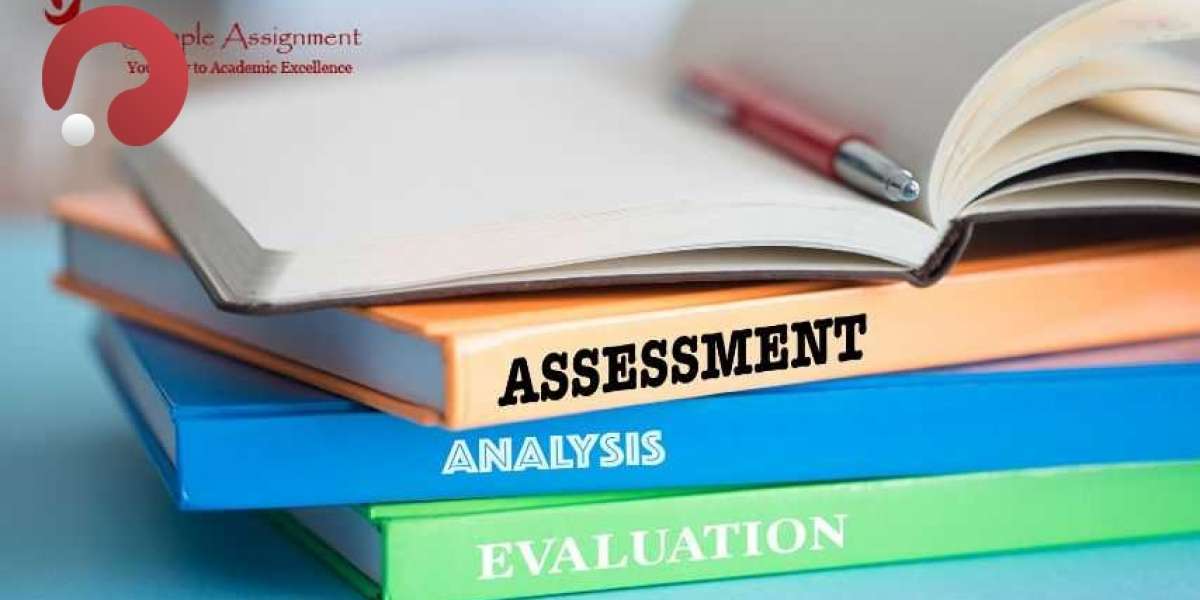Assessment is a cornerstone of academic learning, serving as a tool for evaluating students' understanding of concepts, skills, and their ability to apply knowledge. It plays a crucial role in shaping academic success and guiding learning outcomes. Whether you’re a student preparing for exams, assignments, or other forms of assessment, understanding how to approach and excel in these evaluations is essential for academic and professional development. This article provides a comprehensive guide to understanding assessment and strategies for succeeding in various forms of academic evaluation.
What is Assessment?
At its core, an assessment is a method used to gauge the knowledge, skills, and competencies of a student. It can take several forms, such as exams, quizzes, essays, presentations, group work, or even informal assessments like class participation. The purpose of assessments is not only to evaluate student performance but also to identify areas of improvement, provide feedback, and enhance learning.
Assessments are generally categorized into two types:
Formative Assessment: This type of assessment is conducted during the learning process. It helps students understand their strengths and weaknesses while still learning. Examples include quizzes, short assignments, or discussions.
Summative Assessment: These assessments are conducted at the end of a learning unit or semester and are used to evaluate the overall performance and comprehension. Examples include final exams, end-of-term projects, and dissertations.
The Role of Assessment in Education
Assessments serve a variety of purposes within the educational context:
Evaluating Student Learning: Assessments provide instructors with information on how well students have understood the material. This helps educators adjust their teaching strategies or provide additional support where needed.
Providing Feedback: Feedback from assessments allows students to understand where they excel and where improvement is necessary. It helps them refine their skills, approach assignments more effectively, and focus on areas that require more attention.
Motivation and Goal Setting: Regular assessments motivate students to stay on track with their learning. Setting academic goals based on assessment results can inspire students to work harder and remain focused.
Measuring Academic Progress: Through assessments, students demonstrate their academic progress over time. This data can help instructors, parents, and students themselves track improvements or identify areas that need additional resources.
Common Types of Academic Assessments
Exams: Exams are one of the most traditional and formal methods of assessing student knowledge. They can be objective (multiple-choice, true/false) or subjective (essays, long-answer questions). Preparation for exams often requires extensive review of the course content, practice questions, and time management skills.
Essays and Research Papers: Writing essays or research papers is another common form of assessment, particularly in humanities and social sciences. These assignments assess critical thinking, research abilities, and the ability to construct well-supported arguments. Successful essays require proper planning, clear structure, and adherence to academic writing standards.
Presentations: Presentations assess not only students' understanding of the subject matter but also their ability to communicate ideas effectively. Preparing for presentations involves organizing thoughts coherently, practicing delivery, and ensuring visual aids support key points.
Projects and Group Work: Many programs incorporate group projects, where students work together to complete tasks, often involving research, analysis, and creativity. These projects assess collaboration, problem-solving skills, and the ability to manage time and contribute to a team.
Case Studies: Case studies involve applying theoretical knowledge to real-world scenarios. These assessments are common in business, law, medicine, and engineering. They test students' analytical skills and ability to synthesize information into actionable solutions.
Strategies for Succeeding in Assessments
Success in assessments doesn’t come from cramming or memorization alone; it requires strategic preparation, a solid understanding of the subject, and the ability to demonstrate that understanding effectively. Below are some tips for succeeding in academic assessments:
Plan and Prepare Early: The key to excelling in any assessment is planning ahead. Begin reviewing the material well in advance of your assessment date, and create a study schedule to ensure you cover all the necessary topics. Avoid last-minute cramming, as it often leads to stress and incomplete understanding.
Understand the Assessment Format: Before beginning your preparation, ensure you understand the format of the assessment. If it’s a multiple-choice exam, focus on practice questions. If you’re writing an essay, practice structuring your arguments. Each assessment type requires different strategies.
Active Learning Techniques: Instead of passive reading or highlighting, engage in active learning. Summarize chapters in your own words, create mind maps, or quiz yourself to reinforce concepts. Active engagement helps improve retention and comprehension.
Practice Time Management: Managing your time during assessments is critical, especially for exams and assignments with multiple questions. Practice timed mock exams to simulate the actual testing environment. For assignments, break the task into smaller segments, such as research, outline, writing, and editing, and allocate time to each.
Seek Help When Needed: Don’t hesitate to reach out for assistance if you encounter difficulties in understanding certain topics. Talk to your instructor, join study groups, or utilize online resources. Clarifying doubts early prevents confusion later.
Refine Your Writing Skills: In written assessments such as essays and reports, clear and concise writing is essential. Develop strong thesis statements, organize your ideas logically, and support arguments with evidence. Avoid common mistakes such as excessive wordiness or vague conclusions.
Review Past Assessments: Looking at past assessments can give you insights into what to expect in future ones. Review the feedback you received on previous assignments and exams to understand what you did well and where you need improvement.
Stay Calm and Confident: Stress can significantly affect performance during assessments. Practice relaxation techniques, such as deep breathing or meditation, to stay calm before and during the assessment. Confidence comes from preparation, so trust your efforts.
The Importance of Assessment Help
While self-study and preparation are crucial, seeking assessment help can make a significant difference in your success. Academic support comes in various forms:
Tutors and Study Guides: Tutors can offer personalized support, helping you grasp challenging topics and refine your academic skills. Study guides and online resources can supplement learning, providing extra practice and explanations.
Writing Centers: Many institutions have writing centers that provide assistance with improving writing skills, from brainstorming ideas to final editing. These centers can guide you through the process of writing high-quality essays and reports.
Online Resources: The internet is filled with free and paid resources, such as instructional videos, practice exams, and academic forums. Websites like Khan Academy, Coursera, or academic journals offer comprehensive resources for deeper understanding.
Peer Support: Study groups or peer discussions can be helpful when preparing for assessments. Collaborating with classmates allows you to exchange ideas, clarify concepts, and reinforce your understanding through teaching others.














